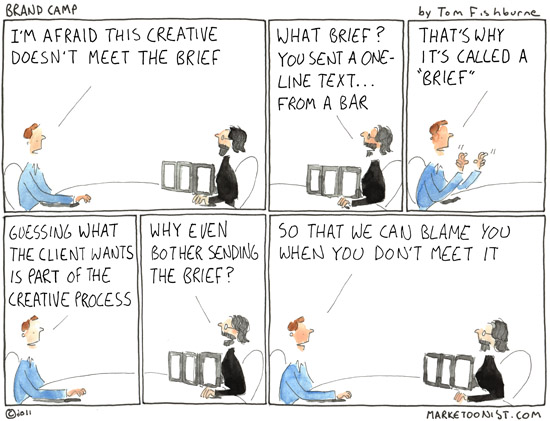
Have you wondered how you can work with a social media marketing agency? Well, help is here—from somebody who has been on both the client and the agency side of digital marketing.
By now, we’ve all heard by now about the importance of having a social media marketing strategy to complement one’s marketing communications plan.
In an age where virtually everybody is on either Facebook, Twitter, YouTube, Instagram, Pinterest, LinkedIn, forums, or blogs, it is important for companies to have a robust and well-considered social media marketing plan on the various online and social media channels.
To do so, one could consider two possible options.
DIY Social Media Marketing
The first approach is to Do It Yourself (DIY). With many of the social media tools available for free, what you simply need to do is to devote time, energy and lots of creative juices to generate oodles of great content while cultivating awesome relationships. After all, aren’t membership to all of these wonderful social networks mostly free?
Of course, that probably sounds easier than it really is.
To do well in social media marketing, you need to not just be active on social media – you need to also learn what works and what doesn’t in engagement, community management, and influence. A good way to improve your skills is to sign up for a reputable social media marketing course.
Trust me, I’ve been in this space long enough to understand how difficult it is.
How to Draft a RFP for a Social Media Agency
The second and perhaps more practical approach for most organisations is to partner an agency to conceptualise, develop and implement its social media strategy. To do so, you may need to craft a Request for Proposal (RFP) to hire a social media agency.
Hopefully, along the way, your team members can learn from the experts on the dos and don’ts of digital influence, and eventually do it themselves. Of course, you can also work on a long-term retainer if you find an agency/consultant whom you can trust and rely on.
Before you engage any firm, however, it is probably important to explicitly state what you wish the agency to achieve for you.
As a general guide, your tender document, invitation to quote (ITQ) or RFP for social media marketing services should contain the following:
Background of Your Organisation
This covers your vision, mission, values, primary activities, company history and other vital corporate and brand information.
What is your unique value proposition? How do you differentiate yourself from others in the field?
It is also useful to outline what your current brand identity is. Are there any personality attributes to be considered? What about its overall look and feel? Note that promoting an organisation is slightly different from promoting a brand on social media.
These help your agency to develop campaigns that are coherent with your brand.
Current Online and Social Media Marketing Efforts
Describe your existing online properties (eg websites, blogs, Facebook pages, Twitter accounts, Youtube channels etc) and the current activities undertaken (types of campaigns, levels of intensity, frequency, and so on).
If possible, do a social media audit to outline where your current strengths, weakness, opportunities and threats (SWOT factors) are.
Where possible, be candid about your previous successes and failures. These help your agency to understand the road you have taken thus far and to be more precise moving forward.
Target Customers and Audiences on Social Media Channels
Who are your targeted customers on social media?
If they are PMETs (ie Professionals, Managers, Executives and Technicians), which subset within this huge group are you pinpointing at? Are you able to paint a brief profile picture of who these folks are?
Some demographic/behavioural information may be useful. In addition, do include any prior historical knowledge you may have on who these desired customers are. They could include their online behaviours and preferences, as well as their offline interactions with your brand.
It is also important to highlight your specific customer challenges and pain points. These will be useful in helping your agency to be more targeted in coming up with a proposal to meet your specific needs.
(Read my article on building a customer profile to understand what I mean.)
Social Media Marketing Goals
What is the overall goal of your social media marketing programme? Here, it pays to be as specific as possible.
Generally speaking, most marketing objectives fall into one of three categories:
- Improve brand awareness: Are you looking at expanding the top-of-mind recall, mindshare and heartshare of your brand?
- Increase engagement: Are you trying to improve the overall engagement rates of your online communities?
- Generate leads: Are you seeking to attract more qualified leads to your business?
- Grow community: Are you seeking to grow your social media communities on Facebook, Twitter, LinkedIn or Instagram?
- Drive online sales: Are you hoping to improve click throughs to your e-commerce page to drive sales?
- Strengthen advocacy: Do you wish to increase content sharing and to trigger more viral sharing in your community?
Social Media Results Reporting (ie KPIs)

A good way to do this is to break it down into specific Key Performance Indicators (KPIs) and targets. These can be broken down into the three categories as highlighted above:
- Brand Awareness/Influence KPIs: Visitors/page views to website/blog; number of “likes” or “favourites”; number of blogged posts generated; total reach of influencers; rankings on Klout/Alexa etc
- Community growth KPIs: Number of new fans/followers; number of subscribers to email lists; number of likes per post; number of comments per post; number of reshares/retweets/reposts; number of online advocates recruited; etc
- Virality KPIs: These are the indicators linked to the social sharing of your social media posts, and would include the number of shares, retweets, and reposts of your content; number of hashtagged posts; number of third party (eg influencers or fans) posts; etc
- Online Leads/Sales KPIs: Number of click throughs to landing page; number of downloads (eg eBook); number of promotion redemptions via coupon codes; number of new leads/prospects generated; etc
- Advertising KPIs: Cost per Thousand Impressions (CPM); Cost Per Views (CPV) for videos; Cost Per Engagement (CPE); Cost Per Clicks (CPC); Click Through Rates (CTR); Cost Per Lead (CPL); Return On Ad Spend (ROAS); and other metrics
Where possible, include both qualitative and quantitative indicators of success, bearing in mind the principle that sometimes less is more.
Note that you should also specify specific timeframes, ie use the SMART acronym (Specific, Measurable, Accurate, Realistic, Time-bound) when determining your KPIs.
Detailed Specifications of Social Media Marketing
This is where it can get a little tedious. While you can write a blank cheque and hope for the best, it may be fairer to both parties if the expectations for the job are clearly defined.
These could include the following:
- Create and design or refresh social media properties. This can include your web portal, blog, Facebook page, Twitter page, LinkedIn profile, Youtube channel and so on.
- Design, development and maintenance of a Blog/Facebook fan page/LinkedIn profile for your organisation. This includes design, booking of domain names (URL), writing and editorial work, photographs, videos and all other related work.
- Content management on Website, Blog, Facebook, Twitter, Instagram, Youtube, etc. This can either be highly specific or be left open so that they are measured principally on outcomes as opposed to outputs.
- Engagement on social media. What can your vendor do nor not do with your online community? Can he respond on your behalf to a customer complaint or does he need to escalate to you? Where possible, ensure clear SOPs on how interactions should be managed.
- Community activation on social networks. This can include the organising of blogger cultivation activities, one-to-one interviews, blogger functions, contests, and the establishing of brand communities on forums and networks.
- Social media advertising and campaign management. From setting up your campaigns, target audiences, managing your ads, to creating ad content and reporting on ad performances.
- User training and equipping. This is extremely important as your ultimate goal should be to build internal capabilities such that you can eventually handle your own social media activities.
If you are “kiasu” (ie fastidious), you could craft the above to be as specific as possible. For example, you could specify that you want two blog posts every week, or daily updates on Facebook. However, bear in mind that the more you ringfence the tasks, the lower the flexibility for the social media agency.
Curriculum Vitae of Social Media Agency

With so many “gurus” out there claiming to be social media experts, one would be hard-pressed to select an appropriate partner without screening these candidates. Here, you may wish to specify the following:
- Background and resumes of the team handling the project
- Social media profiles of the team, if available
- Client list of agency/consultancy
- Case studies/examples of social media marketing campaign successes achieved by the consultancy
- Other information (eg date of establishment, number of staff, paid-up capital of firm, agency website etc)
Technical Web and Digital Specifications (Consult Your IT department)

Don’t go into any new web or digital platform without ensuring that your IT Department has got your back covered (unless of course, they’re absolutely unhelpful). Consider the following:
- Types of platforms and languages used (eg open-source, PHP, etc). You can also specify (if you’re up to it) what preferred platform your blog should be on, eg WordPress, for instance
- Hosting and domain name registration (if necessary)
- Compatibility and inter-operability issues
- Maintenance and service expectations (eg reponse times to “downtime”, service recovery measures)
- Security requirements
Social Media Deliverables and Reports
Unless you plan to track your social media influence on your own, it is useful to plan what your agency can deliver to you in terms of reports and updates. Weave in the following:
- Submission formats and dates
- Weekly/monthly/quarterly/? reports to be submitted
- Format of reports and types of information captured
- Other forms of updates needed (eg number of “attacks” from Internet trolls, incidences)
Social Media Marketing Standard Operating Procedures (SOPs)

Business photo created by freepik – www.freepik.com
Sometimes, it makes sense to appoint a consultant to develop an SOP for social media marketing that your organisation can use later. This social media playbook and reference document should contain the following:
- Description of your social media marketing strategy
- Successful social media marketing campaign examples
- Top social media platforms for marketing your brand and products
- Social media marketing templates and mock-up examples
- Social media checklists
- Frequently Asked Questions (FAQs) complete with answers
- How to manage online crises
Social Media Engagement Duration and Timeframes
Be clear about the extent of your engagement as it extends to the following:
- Start and end dates of engagement
- Operating hours (eg for manning of hotlines, social media responses, feedback management, and whether they include after office hours and weekends)
- Options for renewal in terms of contract duration
- How to carry over unused credits/ manhours
All the Remaining Legalese
Finally, ensure that your contract with the agency minimally covers the following:
- Intellectual property ownership/copyrights (all designs, templates, campaign materials, etc should belong to your company wherever possible)
- Termination and liquidated damages clauses
- Non-disclosure and confidentiality clauses
- Other legal terms and conditions (eg abiding by the laws of the land, privacy of customer information, etc)
Tailor Your Brief to Suit Your Social Media Needs
Naturally, the above simply serves as a guide. What’s most important is to tailor your brief to suit the specific needs of your organisation.
While it can be painful (trust me, I’ve been there), taking the time to list down what you’re looking for helps a great deal.
By doing so, you not only reduce the ambiguity of the relationship between the client and the agency but help to cement it into a mutually beneficial win-win partnership.

Courtesy of Tom Fishburne

Thanks for this insight, i would always consider being concise yet write things up on catchy way.
Red
Social media have transformed corporate communication practices: Tools such as Twitter, Facebook and Google+ allow organizations to speak directly to and solicit responses from the public quickly and affordably. But the original intention of these media were to connect friends, not customers or employees; for businesses, accustomed to managing all aspects of communications (and muting dissent), social media can be an awkward fit. social media consultant
This is an awesome post.Really very informative and creative contents. These concept is a good way to enhance the knowledge.I like it and help me to development very well.Thank you for this brief explanation and very nice information.Well, got a good knowledge.
awesome post . really informative and knowledgable.
Thanks for sharing valuable information about social media marketing. This will help to increase people engagement, brand awareness.
Thanks for the sharing! It’s really comprehensive and straight to the point. I’ve learned a lot.
Great post. Thank you
Thank you, this information really helped me make a creative brief.
Great post for Social Media Marketing, thank you for sharing such type of post.
WOW….! Thanks for sharing great information about social media marketing. This will help to increase people engagement.
Thank you for the sharing nice tips about the social media brief.